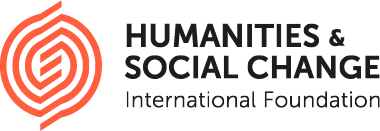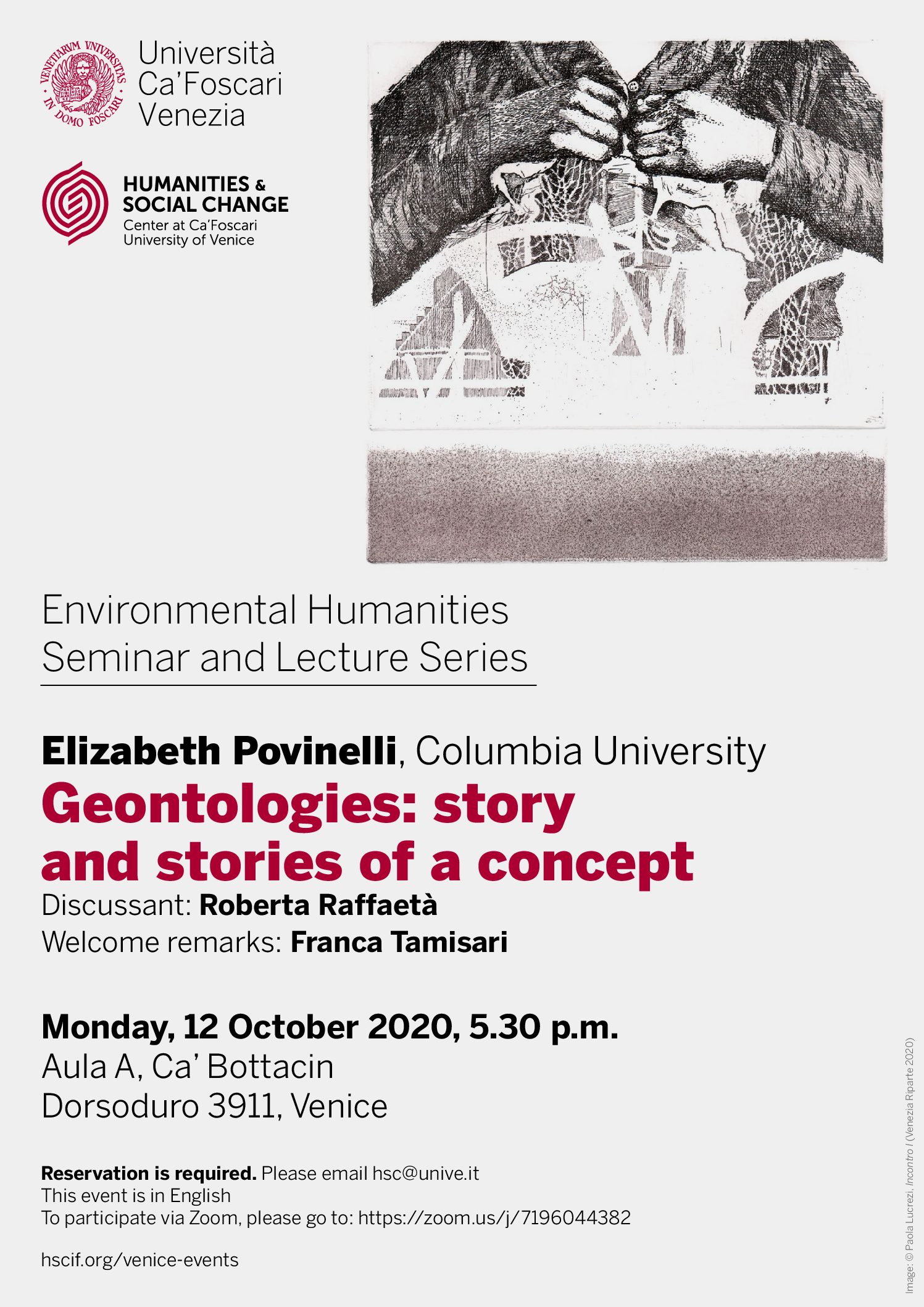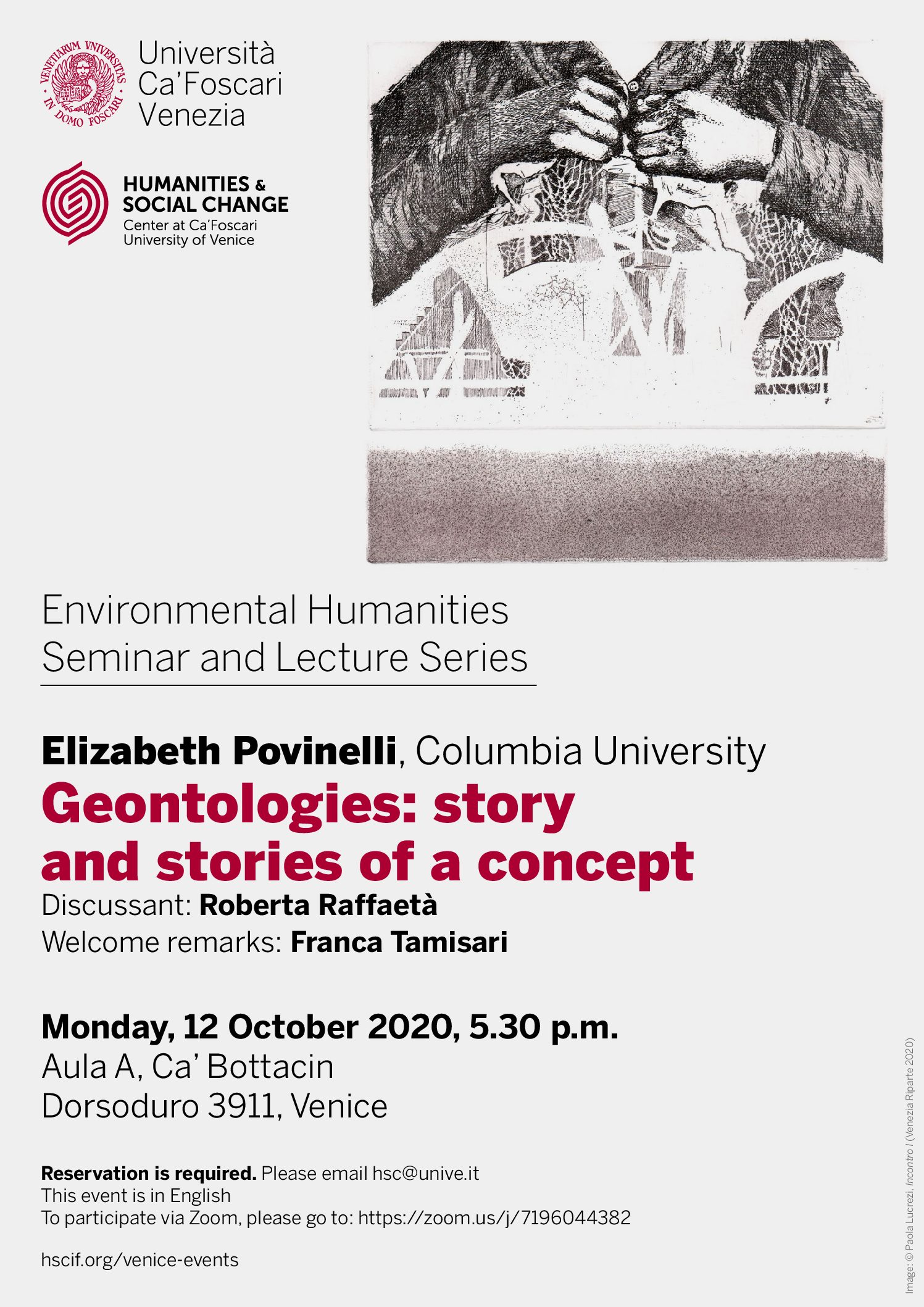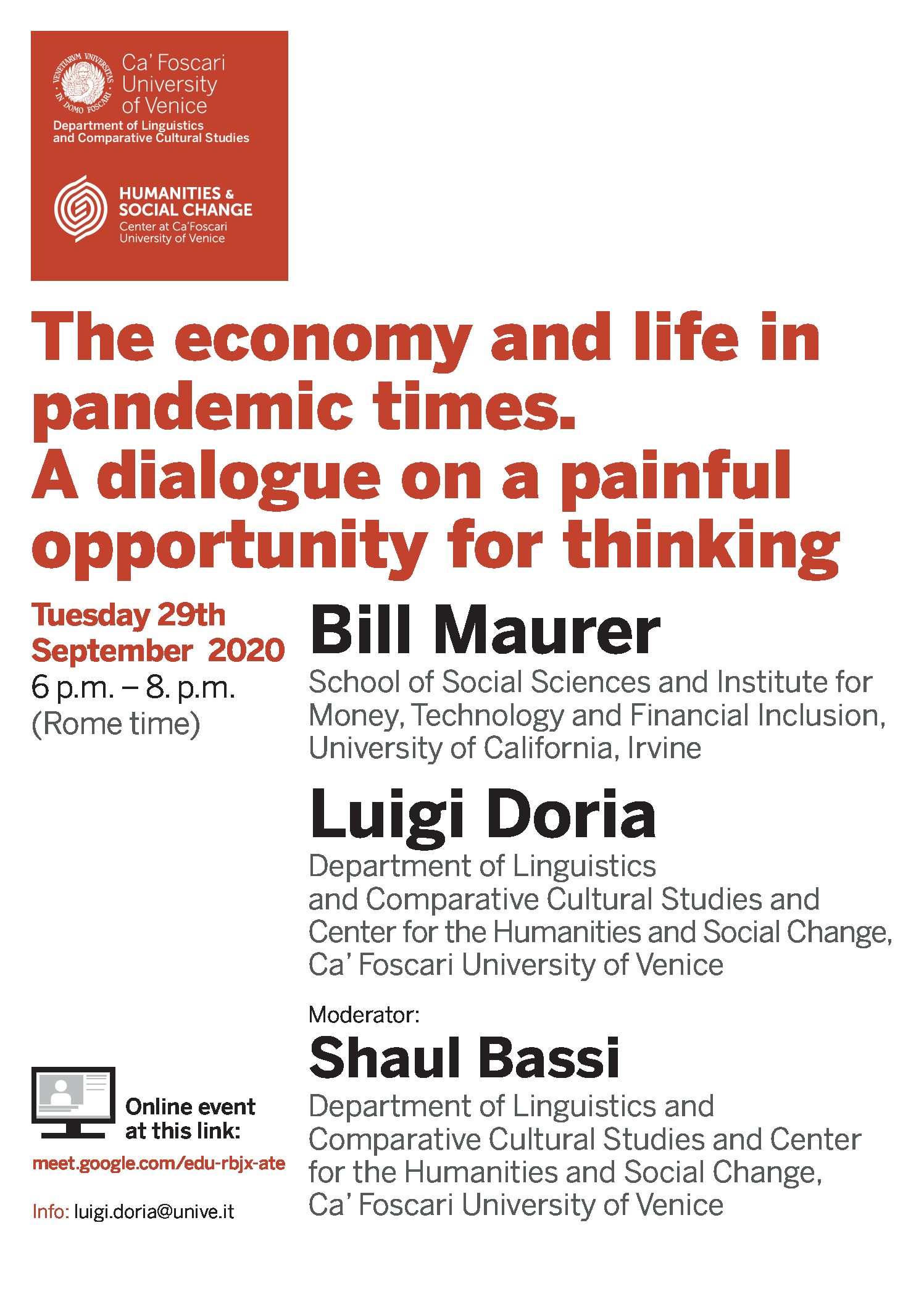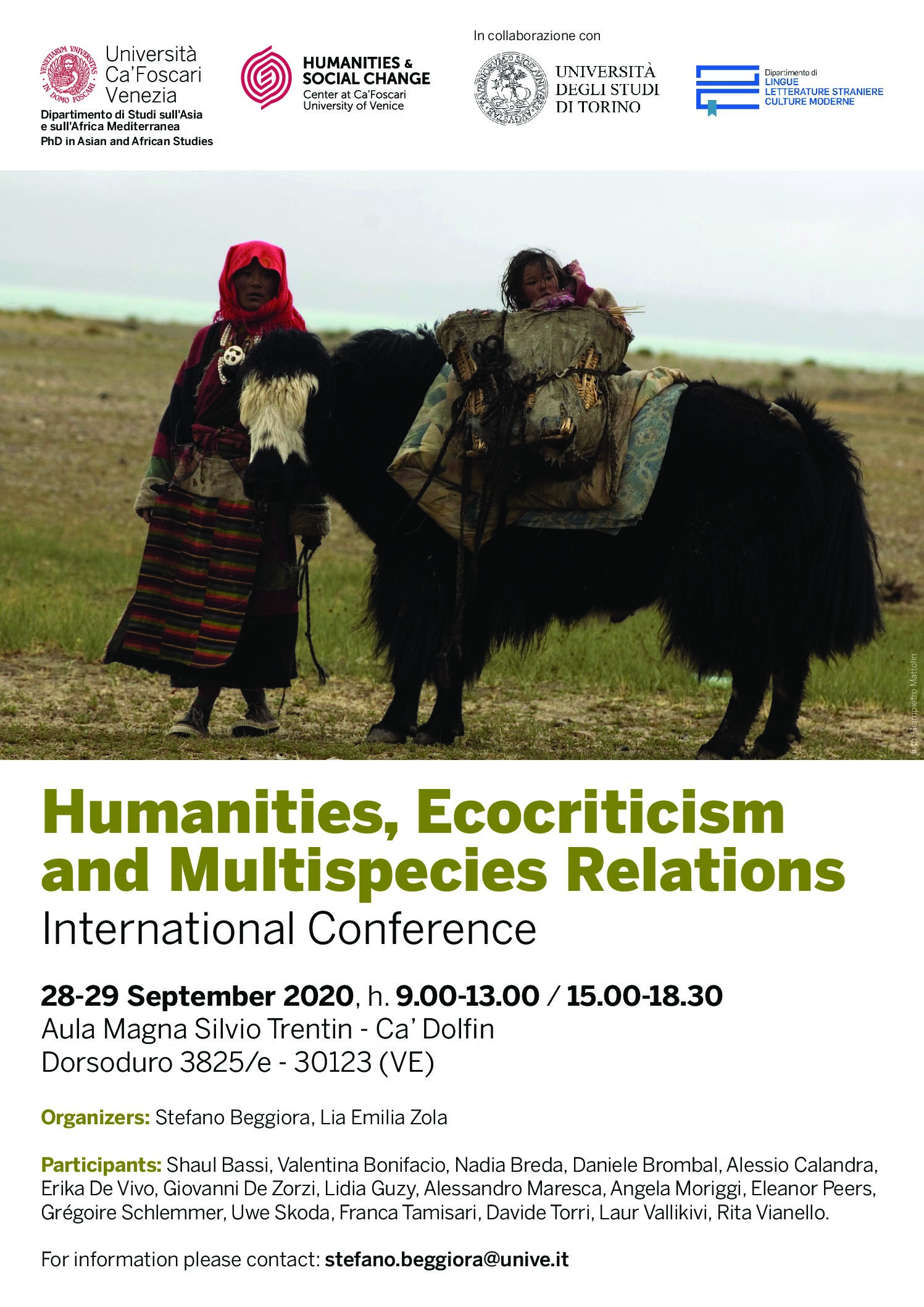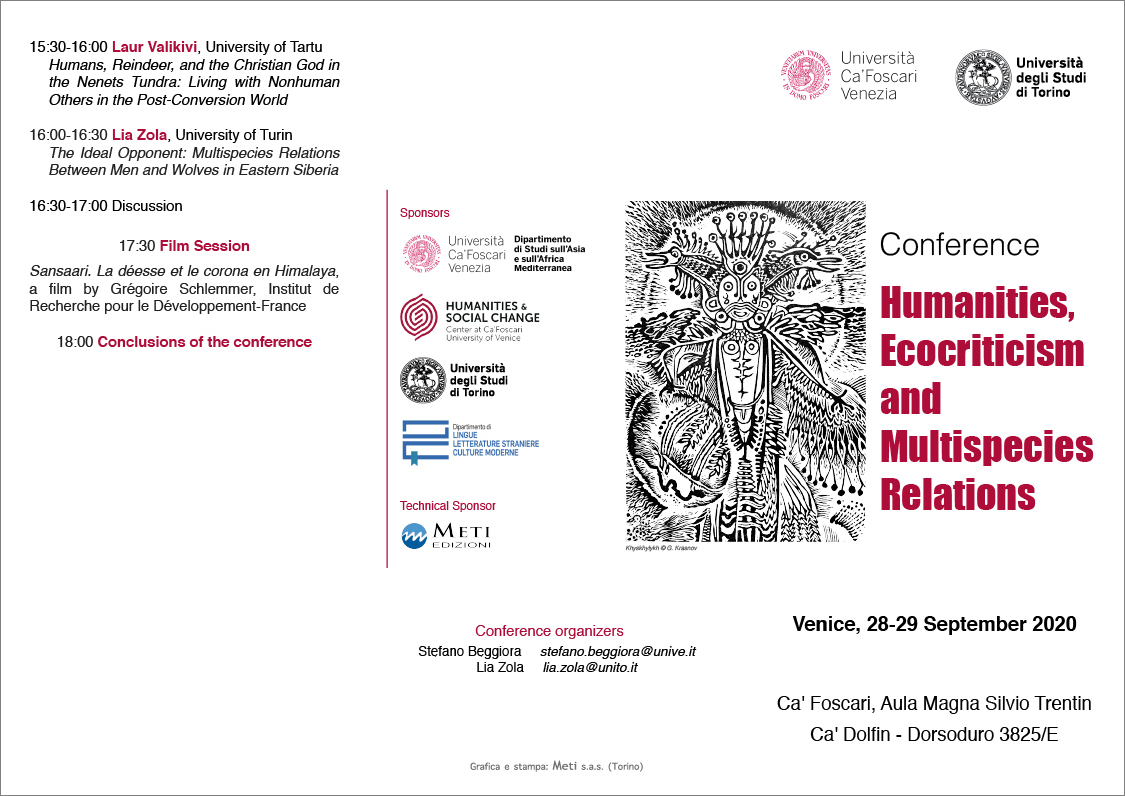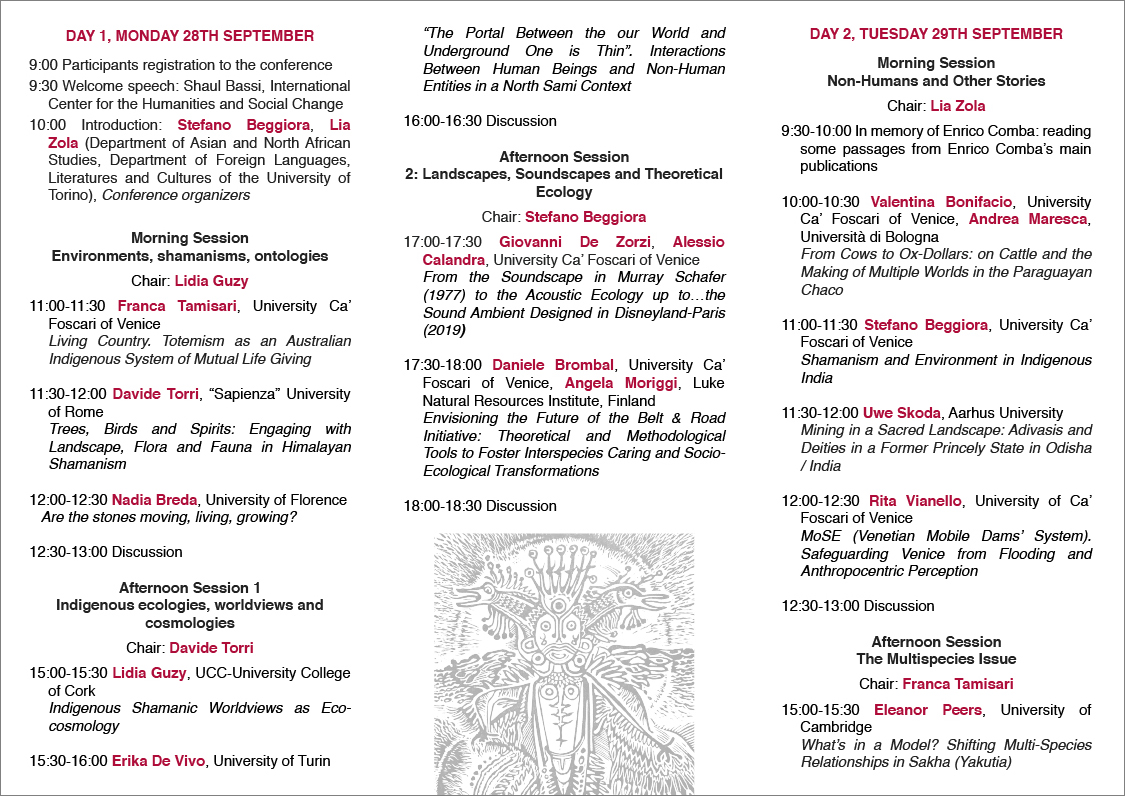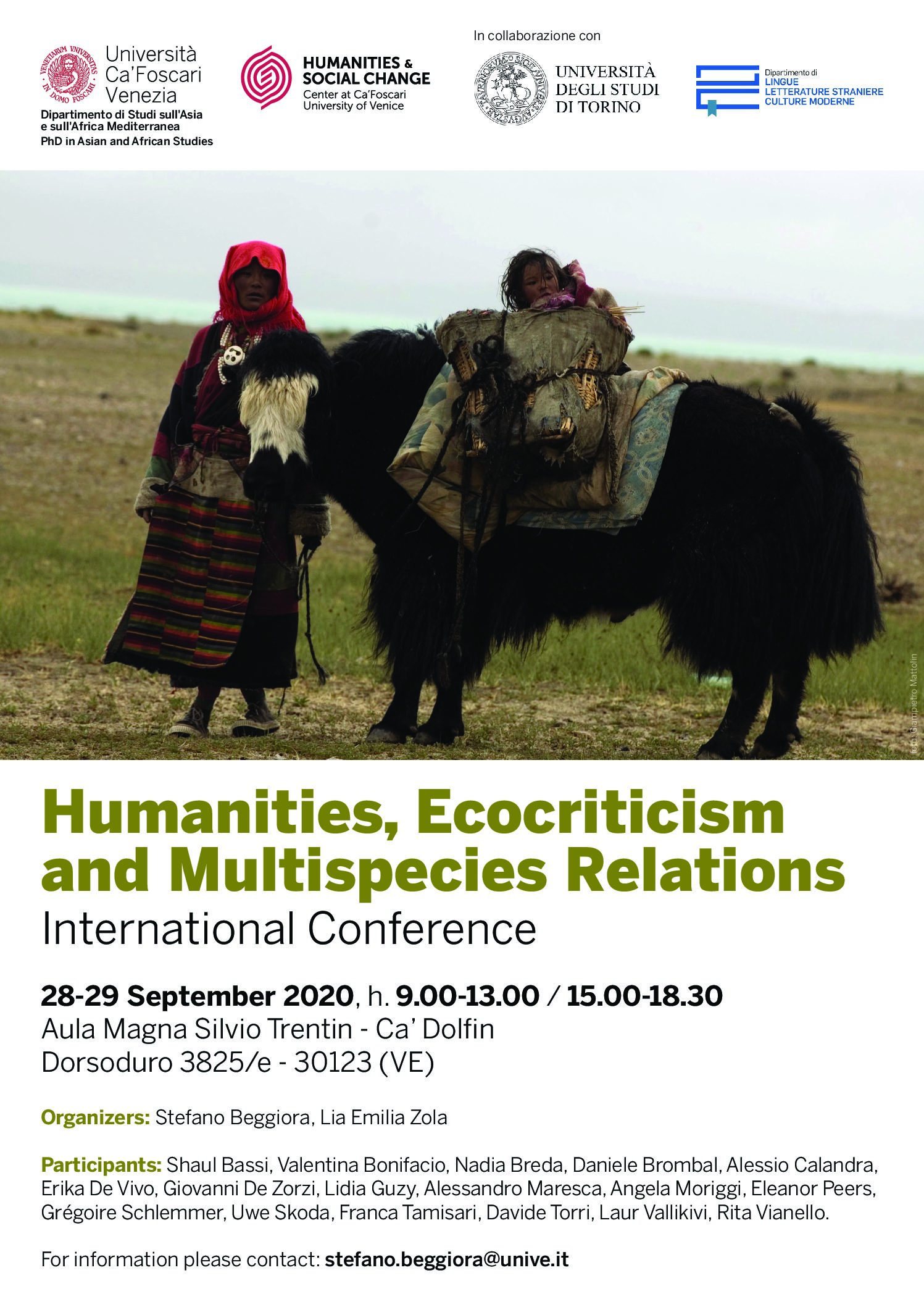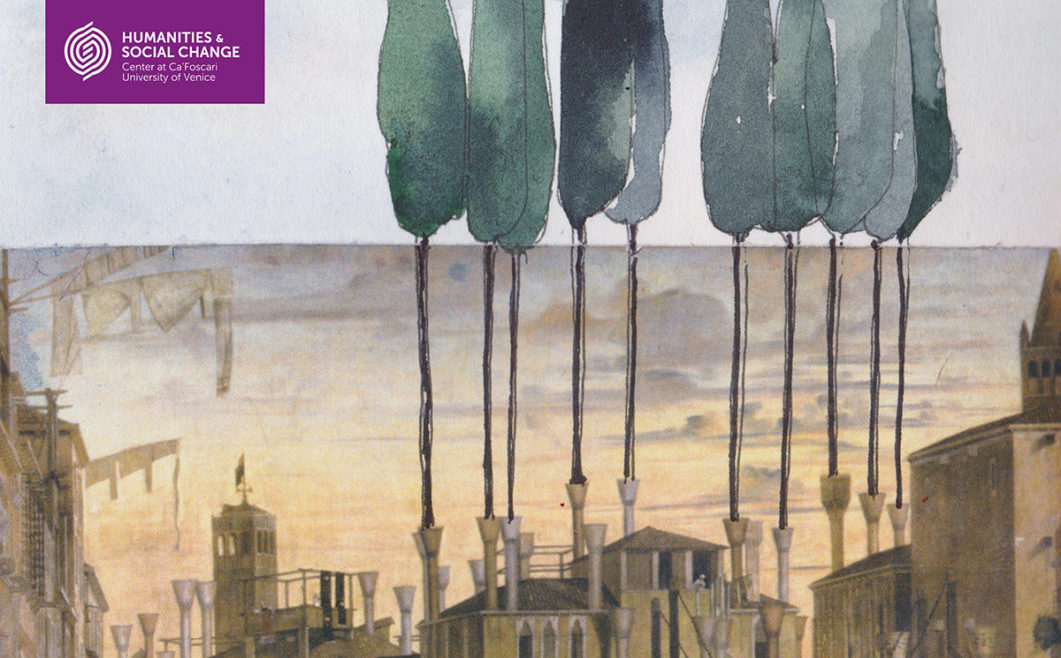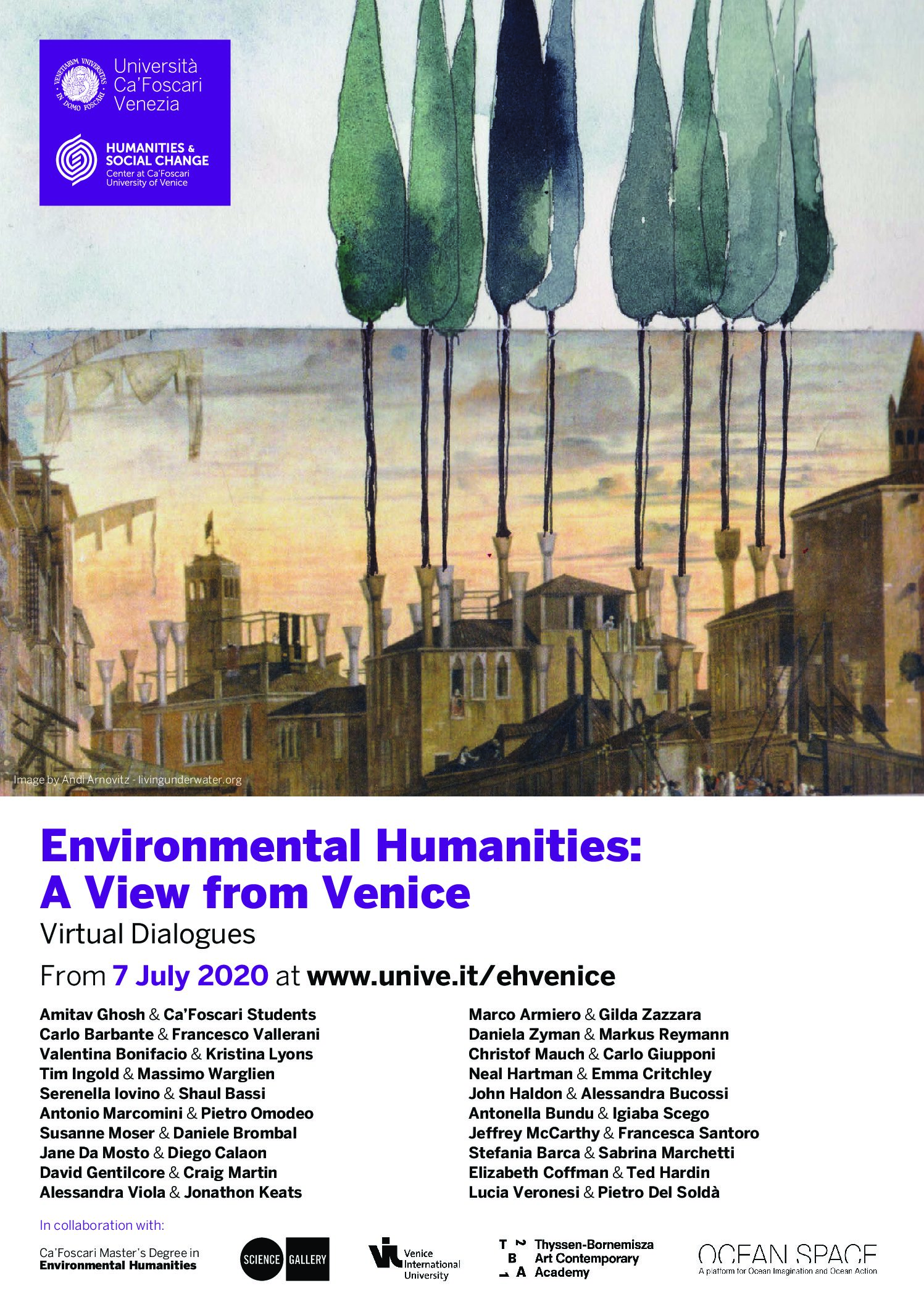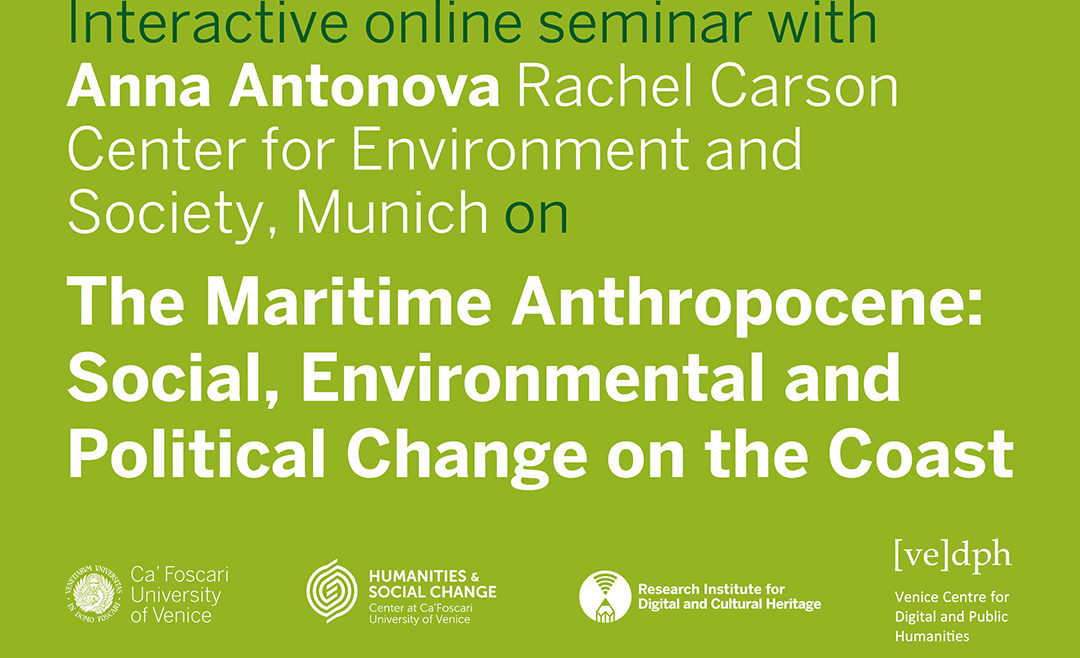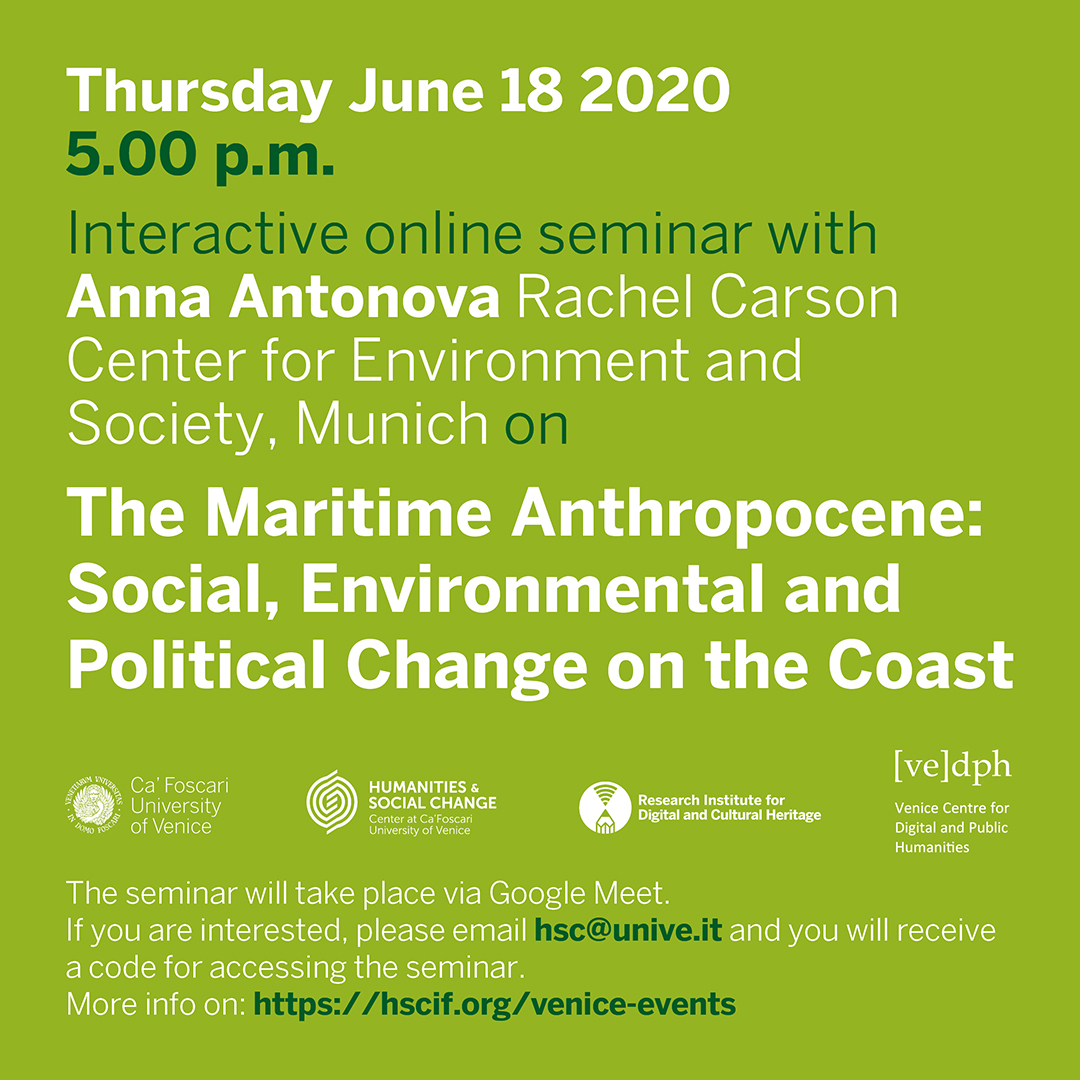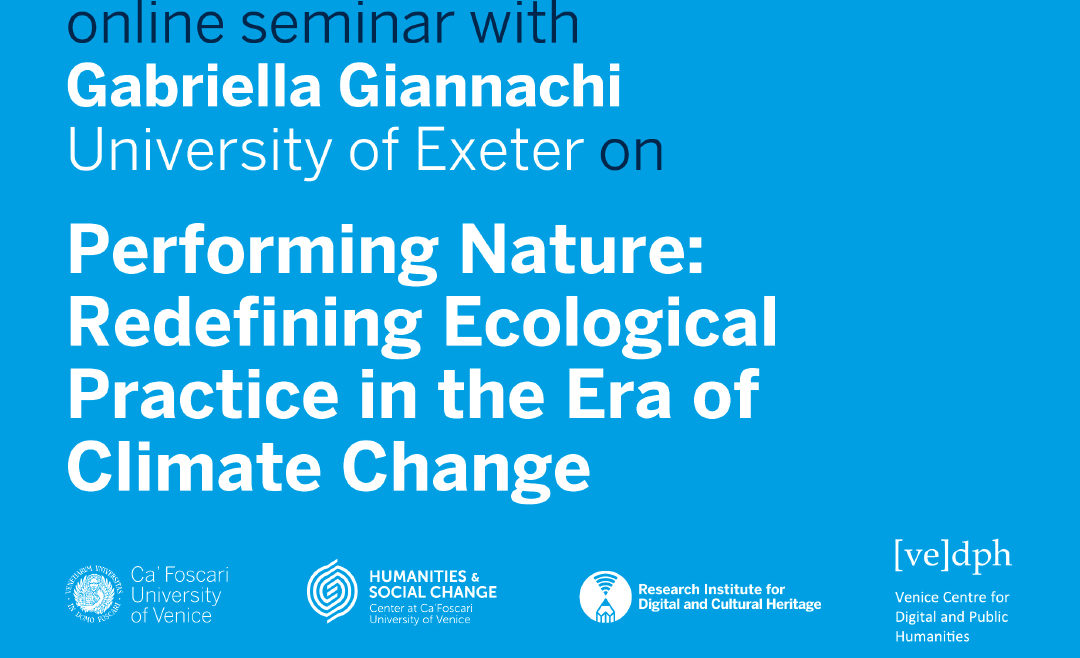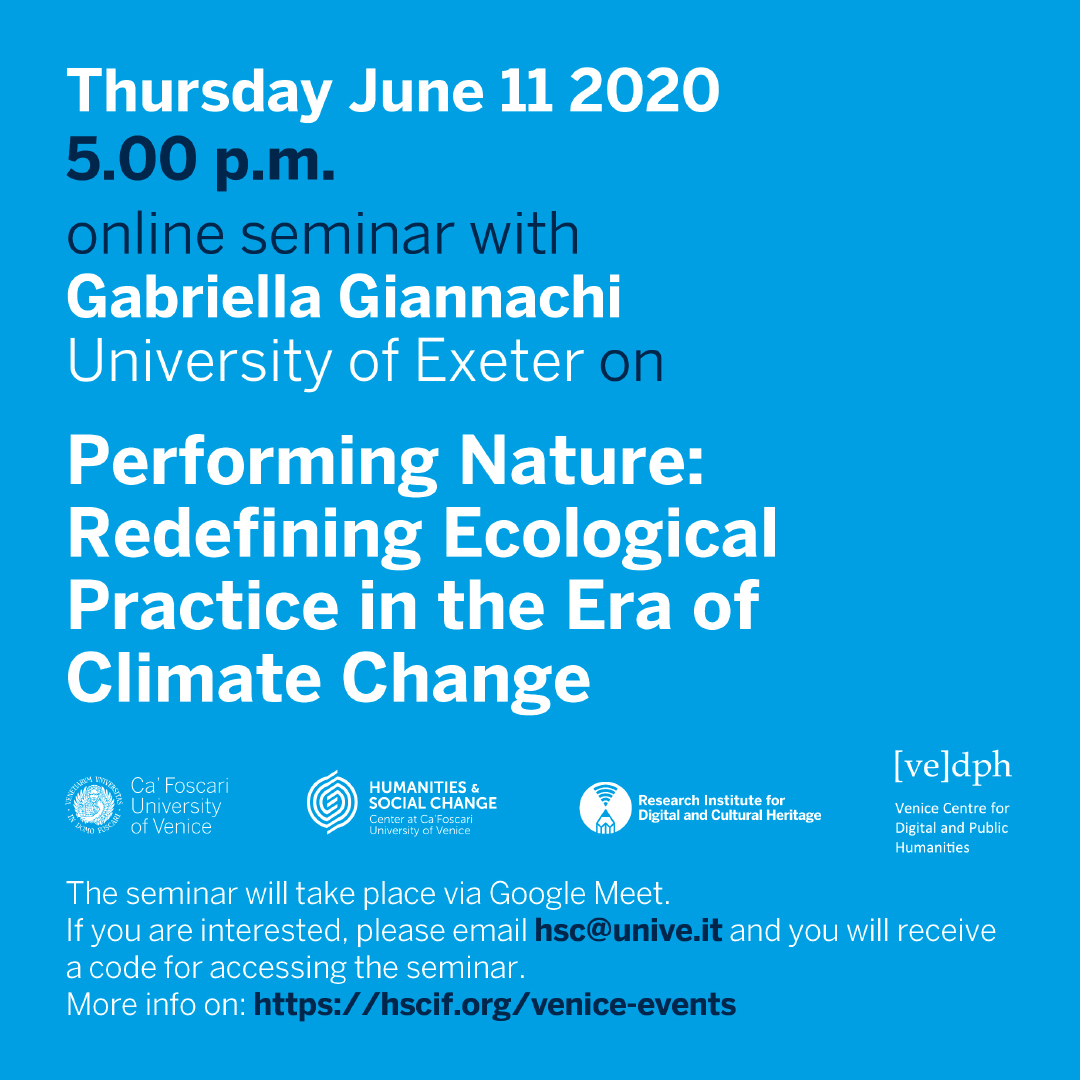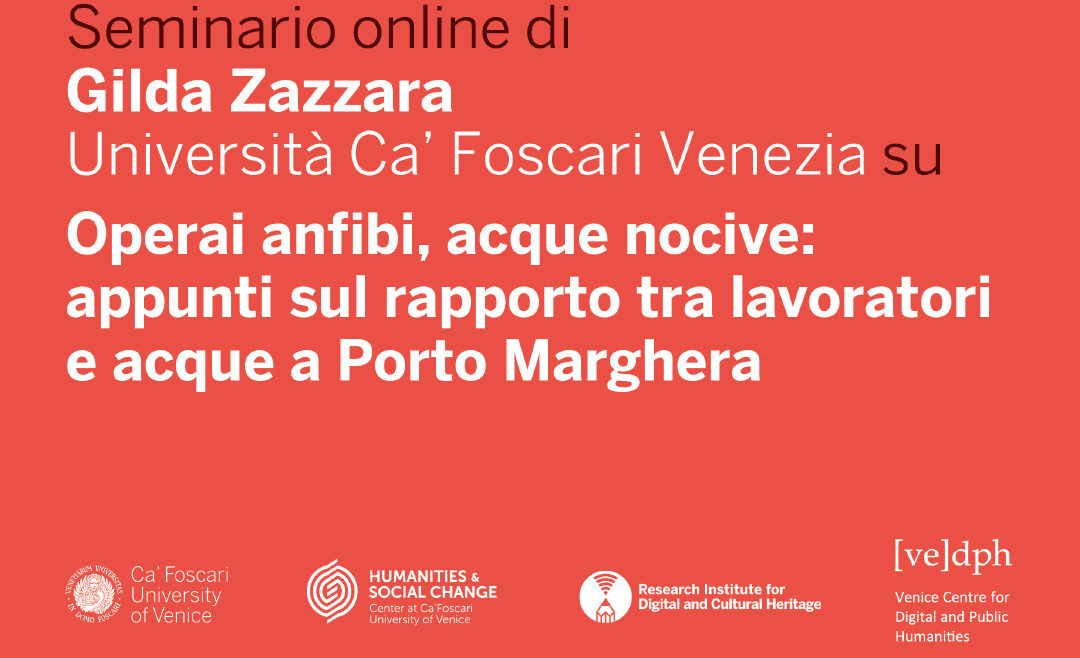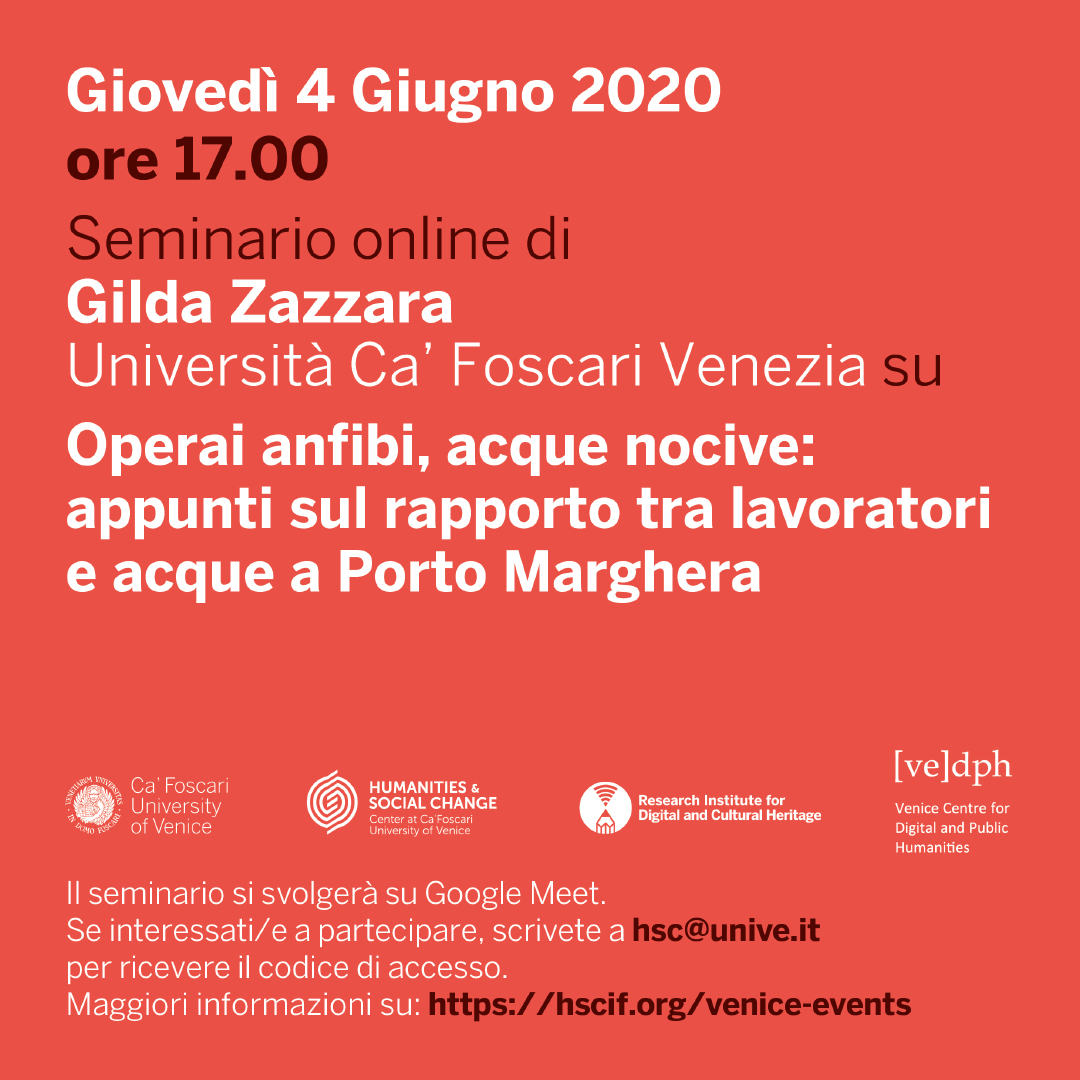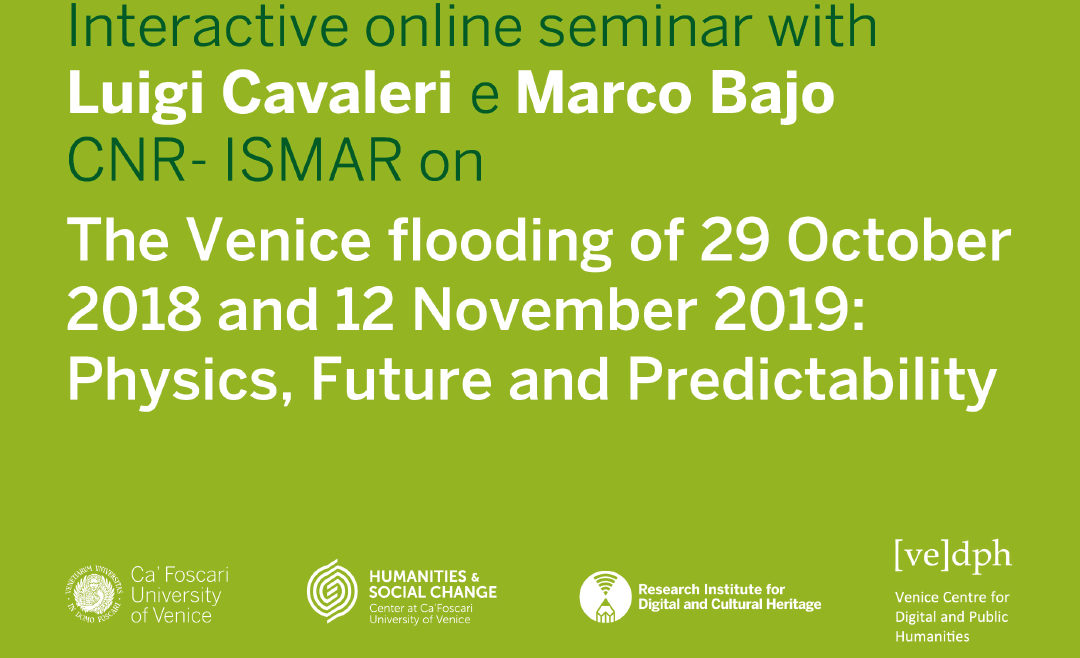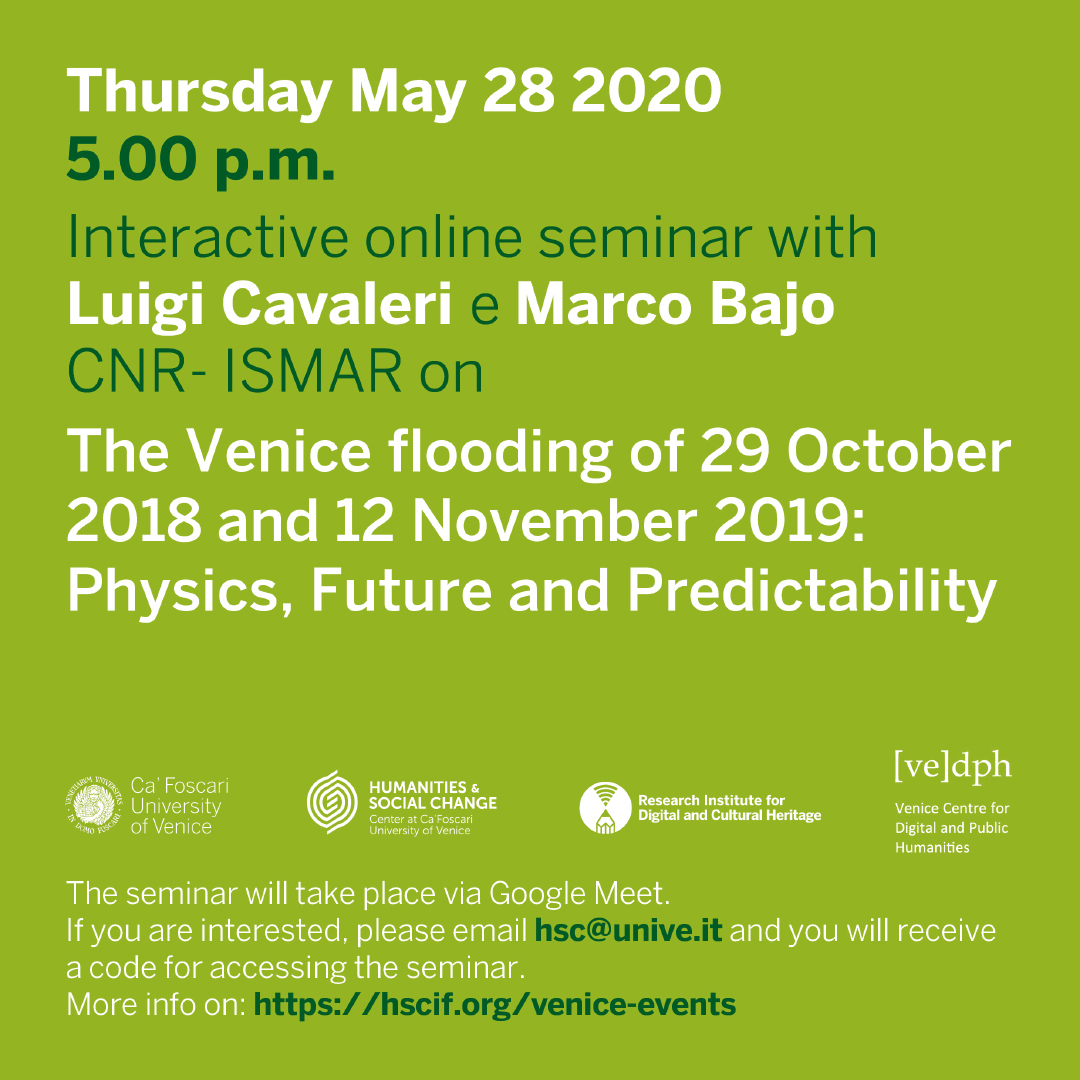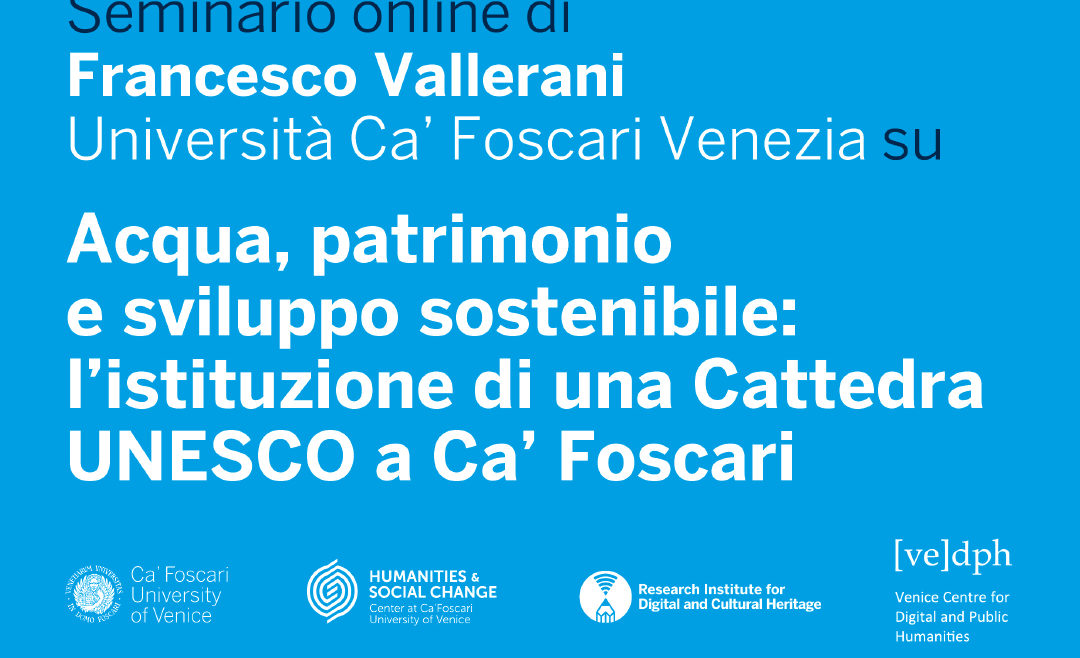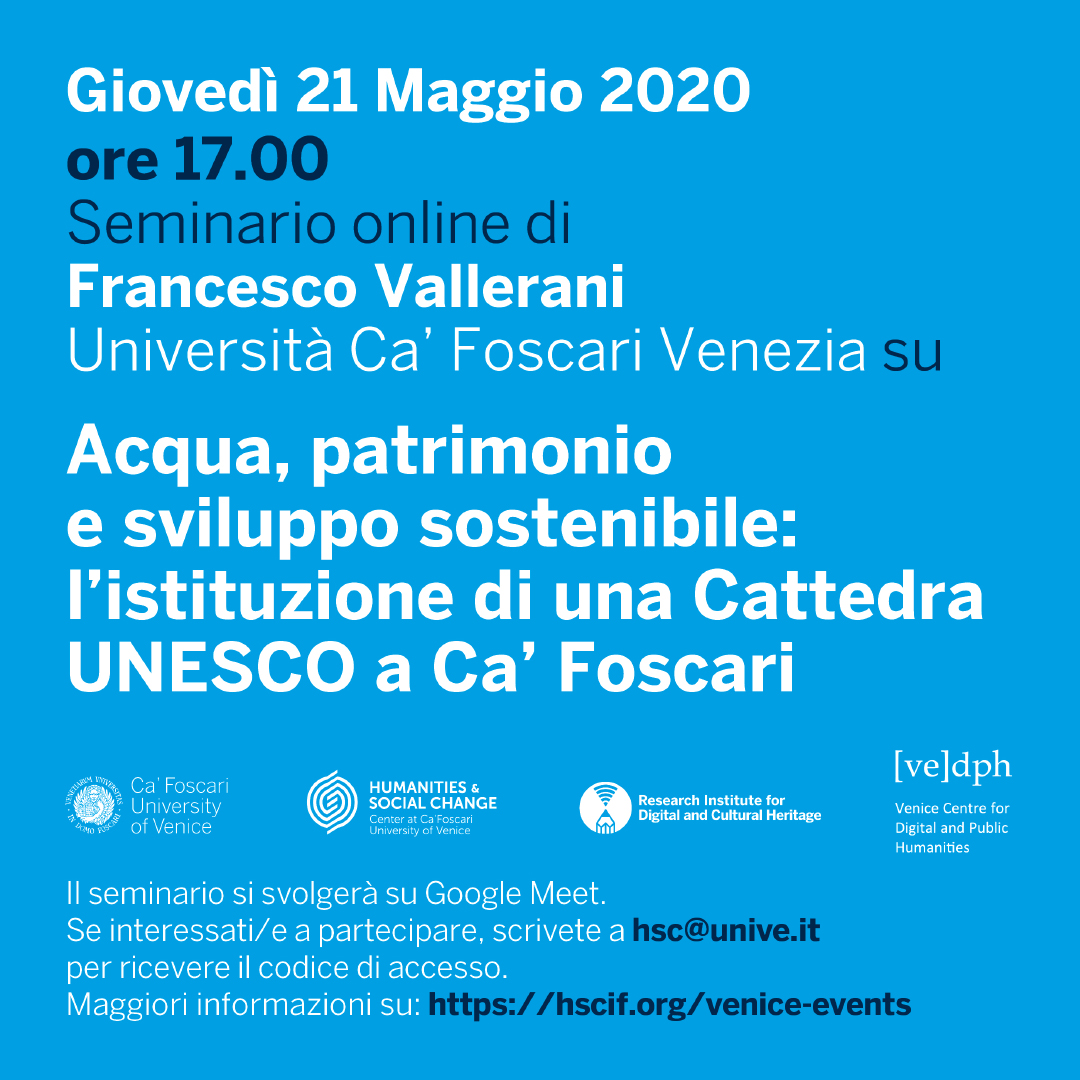From July 7 until July 31 the Center for the Humanities and Social Change (HSCVenice) posted every day a dialogue around the environmental humanities, across time, space, themes, and cultures. This series celebrates the launch of the first master’s degree in Environmental Humanities in Italy, at Ca’ Foscari University of Venice and the amazing richness and variety of this academic field. The deadline for enrolling in the Master’s Degree in EH is August 18th.
Each dialogue is linked to the list below, and will remain available. The dialogues are also collected in a playlist published on Ca’ Foscari’s YouTube channel and on and on www.unive.it/ehvenice.
A View from Venice
Week 1: Explorations
July 7
Amitav Ghosh & Ca’Foscari students (Nour Al Amine, Santiago Alarcon, Alia Elsaady, Lilit Gharagozyan, Ilaria Lizzini, Buse Umur, Francesca Zordan): Banadig, Bundook, Venice….. Stories from Gun Island
Valentina Bonifacio is Researcher of Anthropology and member of the faculty of the new Master’s Degree Programme in Environmental Humanities at Ca’ Foscari University of Venice.
Kristina Lyons is Assistant Professor in Anthropology at University of Pennsylvania
Carlo Giupponi is Full Professor of Environmental Economics at the Department of Economics, Ca’ Foscari University of Venice, Dean of the Venice International University and member of the faculty of the new Master’s Degree Programme in Environmental Humanities.
Christof Mauch is Director (jointly with Helmuth Trischler) of the Rachel Carson Center as well as the Chair in American Culture and Transatlantic Relations (currently on leave) at Ludwig Maximilian University of Munich
Daniele Brombal is Associate Professor at the Department of Asian and African Studies at Ca’ Foscari University of Venice and member of the faculty of the new Master’s Degree Programme in Environmental Humanities.
Susanne Moser is Affiliated Faculty in the Department of Landscape Architecture and Regional Planning at the University of Massachusetts-Amherst and a Research Faculty in the Environmental Studies Department at Antioch University New England
Week 2: Water
July 13
David Gentilcore & Craig Martin, Airs, Waters, Places: the Health of Early Modern Venice
David Gentilcore is Full Professor of Modern History at Ca’ Foscari University.
Craig Martin is Associate Professor of History of Science at Ca’ Foscari University of Venice and member of the faculty of the new Master’s Degree Programme in Environmental Humanities.
Jeffrey McCarthy is the Director of Environmental Humanities at the University of Utah.
Francesca Santoro is Programme Specialist of the Intergovernmental Oceanographic Commission of UNESCO.
Daniela Zyman is Artistic Director of TBA21 and curator of Territorial Agency: Oceans in Transformation exhibition, which will open at Ocean Space in August. Markus Reymann is the Director of TBA21–Academy, and Chair of the Alligator Head Foundation
July 16
Carlo Barbante & Francesco Vallerani, Paesaggi di ghiaccio e di acqua: memoria del clima e idrografie culturali
(in Italian with English subtitles)
Carlo Barbante is Professor of Analytical Chemistry, Director of the Institute for the Dynamics of Environmental Processes – CNR, University Ca’Foscari Venice.
Francesco Vallerani is Full Professor of Human Geography at Ca’ Foscari University of Venice.
July 17
Emma Critchley & Neal Hartman, Water, Connectivity, and Breath: Art at Science Gallery Venice
Emma Critchley is an artist who uses a combination of photography, film, sound and installation to continually explore the human relationship with the underwater environment as a political, philosophical and environmental space.
Neal Hartman is the the Director of Science Gallery Venice.
Week 3: Crossings
Massimo Warglien is Full Professor of Economics at Ca’ Foscari University of Venice.
Tim Ingold is Emeritus Professor of Anthropology and Anthropological Theory at the University of Aberdeen
July 21
John Haldon & Alessandra Bucossi, The Science of Reconstructing the Past: the Contribution of Environmental Studies to Medieval History
John Haldon is emeritus Shelby Cullom Davis ’30 Professor of European History and Professor of Byzantine History and Hellenic Studies at Princeton University and director of the Climate Change and History Research Initiative at Princeton.
Alessandra Bucossi is tenure-track assistant professor (RTDb) of Byzantine Civilisation at the Department of Humanities of Ca’ Foscari University of Venice and member of the faculty of the new Master’s Degree Programme in Environmental Humanities.
Sabrina Marchetti is Associate Professor at Dept. Philosophy and Cultural Heritage, Ca’ Foscari University of Venice and Principal Investigator in ERC Starting Grant project “DomEQUAL” (2016-2020) and member of the faculty of the new Master’s Degree Programme in Environmental Humanities.
Stefania Barca is senior researcher at the Center for Social Studies of the University of Coimbra (CES/UC)
Alessandra Viola is an author and producer, currently scholar in residence at HSCVenice.
Jonathon Keats in an American conceptual artist and experimental philospher
(in Italian with English subtitles)
Antonella Bundu is an activist and a politician.
Igiaba Scego, former fellow of HSC Venice, is a writer, jornalist and activist. Her latest book is La linea del colore (Bompiani, 2020)
Week 4: Venice
(in Italian with English subtitles)
Antonio Marcomini is Full professor of Environmental Chemistry at the Ca’ Foscari University of Venice and member of the faculty of the new Master’s Degree Programme in Environmental Humanities.
Pietro Omodeo is Associate Professor at Ca’ Foscari University of Venice, a historian of science and philosophy and a professor of philosophy of science and member of the faculty of the new Master’s Degree Programme in Environmental Humanities.
Shaul Bassi is the director of HSCVenice Associate Professor of English Literature and Director of the new Master’s Degree in Environmental Humanities at Ca’ Foscari University of Venice.
Serenella Iovino is Professor of Italian Studies and Environmental Humanities at University of North Carolina at Chapel Hill
July 29
Jane Da Mosto & Diego Calaon, Making Venice? Archaeology, Environment and Urban Ecology
Jane Da Mosto is an is an environmental scientist, and co-funder of the NGO “We are here Venice”.
Diego Calaon is Professor of Ancient Topography at Ca’ Foscari University of Venice and member of the faculty of the new Master’s Degree Programme in Environmental Humanities.
July 30
Marco Armiero & Gilda Zazzara, Bodies of Workers, Bodies of Waters. Venice as an Industrial Ecosystem
(in Italian with English subtitles)
Marco Armiero is an environmental historian (with a PhD in Economic History), currently working as a the Director of the KTH Environmental Humanities Laboratory in Stockholm and Senior Researcher at the National Research Council, Italy.
Gilda Zazzara is a Researcher of Contemporary History at Ca’ Foscari Unversity of Venice and member of the faculty of the new Master’s Degree Programme in Environmental Humanities.
July 31 – Special double feature
(in Italian with English subtitles)
Lucia Veronesi is an artist based in Venice.
Pietro Del Soldà is an author and radio host.
Elizabeth Coffman and Ted Hardin are producers and film makers, working together at their company Long Distance Productions
